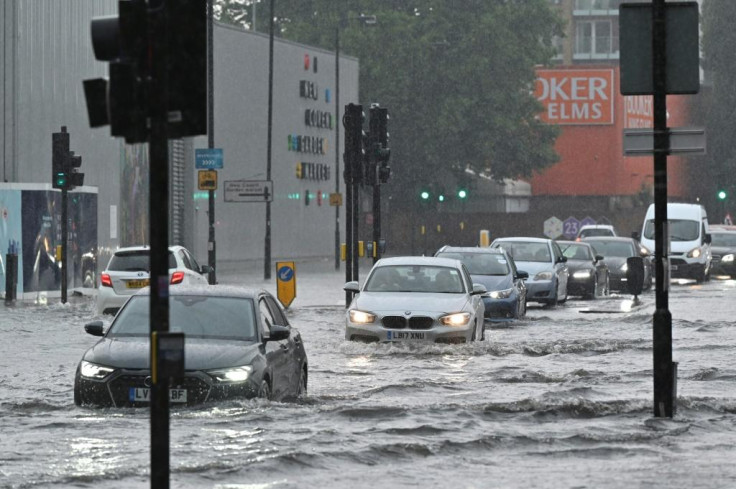Climate Change Combat Flood Centre Launched to Predict Flooding in the UK
As flooding in the UK has become a regular problem because of harsh storms caused by climate change, a climate change combat flood centre has been launched to train next-generation experts in flooding.

The British people's hardship with harsh spells of storms that cause floods in the winter could be gone as the UK government launched a flood centre to combat climate change-related floods.
Over the Christmas weekend, Britain was reeling under the flooding caused by Storm Gerrit.
Earlier this week, £6.5 million worth of funding was announced to launch a research and training centre to study and understand how to manage floods caused by rains and strong winds from UK storms like the Storm Henk which swept the country in January.
UK researchers and scientists from the University of Southampton will lead this project to build the climate change combat flood centre which seeks to use the expertise of UK environmental experts working on ways to protect against rising river levels and rainfall along with sea levels rise.
Apart from saving lives and property destroyed by UK floods, the main aim of this project is to turn Britain into a flood-resilient economy.
Other than researchers from Southampton University, UK scientists from the British Geological Survey, National Oceanography Centre, and UK Centre for Ecology & Hydrology would work on the climate change combat flood centre project along with Newcastle, Bristol and Loughborough University environmental experts.
Professor Ivan Haigh, the leader of the combat flood centre project from Southampton University termed flooding a "destructive natural hazard" which needs immediate attention.
Professor Ivan Haigh said: "Flooding is the most destructive natural hazard that humanity faces with nearly two billion people exposed to its risk. We need to act now and come together to improve the way we manage the large and growing threat of flooding in the UK and elsewhere in the world."
"We will train experts to best understand how to tackle the challenges of floods in future years, not only for the UK but countries globally who are facing extreme problems from climate change," added the sea levels rise studying expert.
At present, one out of six UK homes lie in flood-prone areas and are vulnerable to climate change-related flooding.
Professor Haigh explained how the surface runoff, increased river flow, waves and storm surges cause flooding in the UK which is further enhanced by climate change and population shifts.
Addressing flooding challenges at the climate change combat flood centre
The Deputy Director of the National Oceanography Centre, Dr Jennifer Brown said the new climate change combat flood centre will try to address flooding challenges.
Dr Brown said: "This is a great opportunity to focus science research directly around the challenges faced by those managing and responding to flooding."
The £6.5 million funding for the flood centre came from the Natural Environment Research Council (NERC) along with seven other centres.
Advanced monitoring technology, artificial intelligence, computer modelling and machine learning would be used to map and identify potential flood risk zones for the future based on the current pattern of flooding.
The flood centre will be supported by 37 organisations that deal with flooding in the UK including the UK water companies, UK energy companies, infrastructure companies, engineering and management consultancies, UK regulators, UK government bodies, finance and insurance companies and UK charities.
Many key players from the environmental sector have welcomed the new measure including water companies.
A lead scientist from the Environment Agency Dr Sean Longfield called it a fantastic opportunity to train a new generation of UK flood researchers.
Dr Longfield said: "We look forward to working closely with a diverse range of people, skills and academic perspectives over the next seven years to develop world-leading research to improve our understanding of and resilience to future flooding and coastal change."
Drawing attention to the situation in the Trent catchment where several UK homes and UK businesses are suffering from flooding, the CEO of Tyne Rivers Trust Dr Ceri Gibson said it couldn't have been a "better time to get this exciting initiative up and going".
ARUP Group Associate Director Ben Murray said that "training the next generation of interdisciplinary practitioners is essential" as he witnessed the "flood risk challenges posed to society and the environment from a changing climate" in both global and domestic events.
The Head of Catastrophe Research at Canopius Group, Geoffrey Saville hoped that the flood centre "can support PhD projects that can drive innovation through the application of new academic findings related to flood risk and resilience" as it's focussed on research and development of the UK insurance industry.
© Copyright IBTimes 2025. All rights reserved.






















